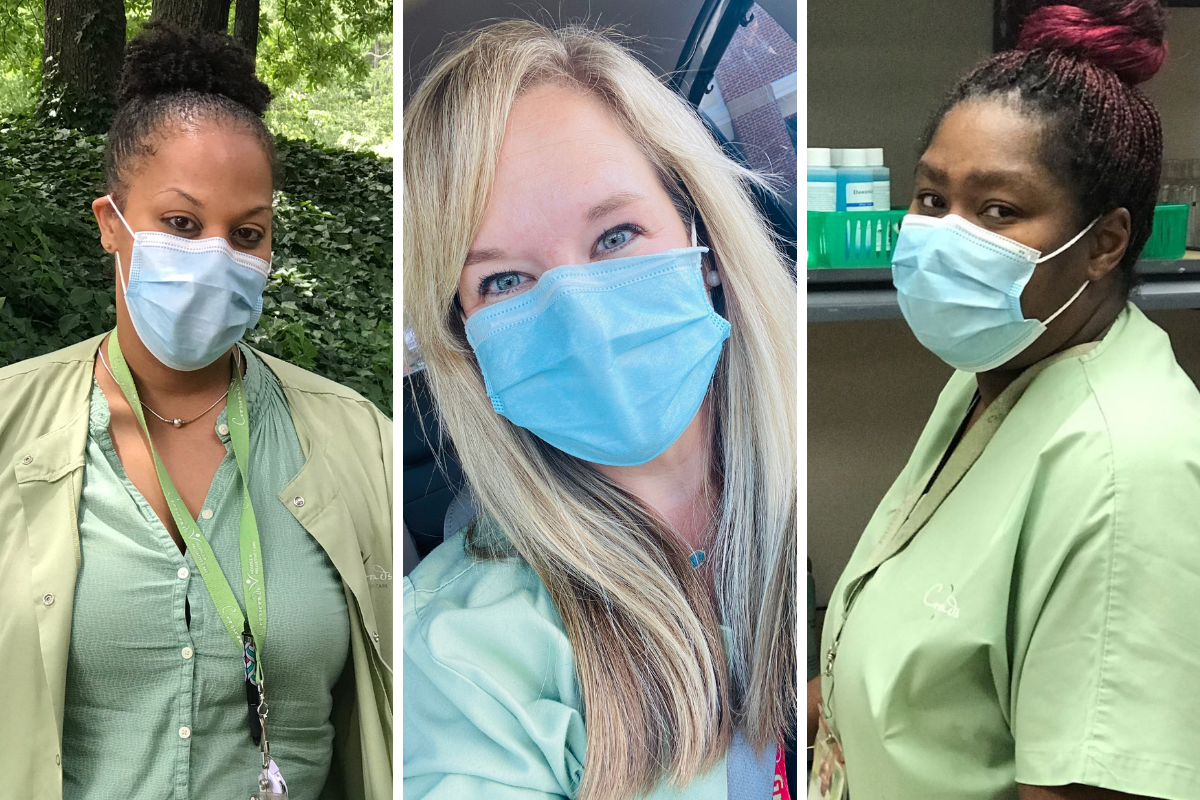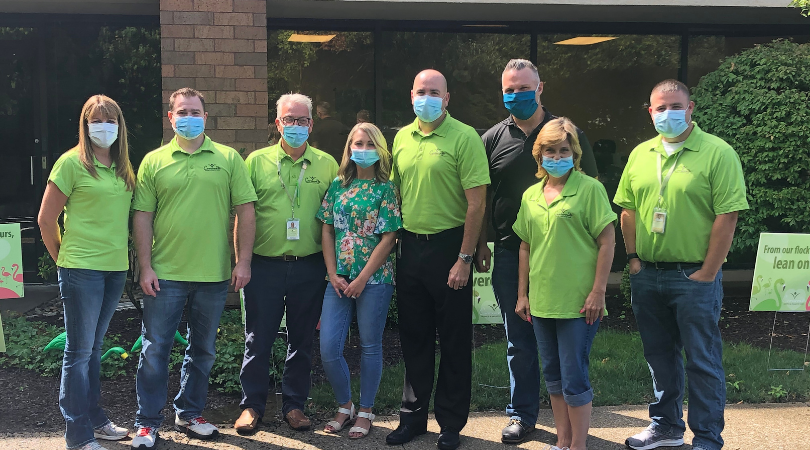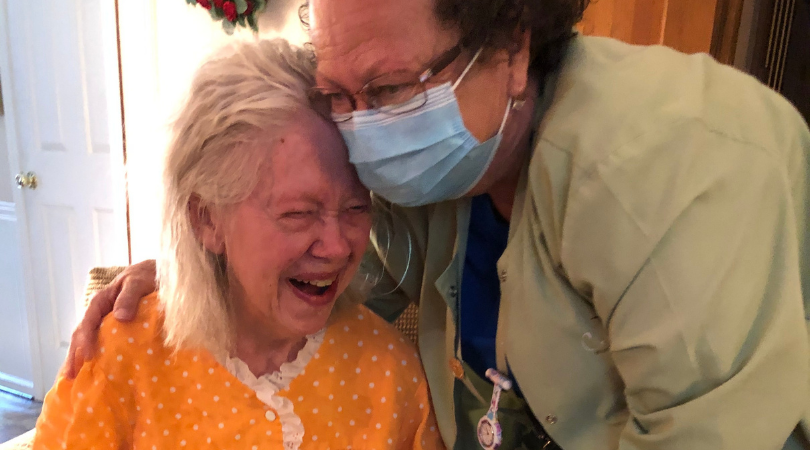Hospice Career Journey: Seeking Stewards of Compassion

Career paths are a popular back-to-school topic as millions of students around the country return to the classroom – or virtual classroom, as the COVID-19 pandemic continues.
Ask anyone in the field if there’s a typical educational or career path for hospice or palliative care workers and they’ll say that there isn’t one. But there is a consensus that it takes a special type of person to excel in and enjoy end-of-life care.
It’s not just clinical care professionals such as nurse practitioners, nurses, and aides that staff a hospice and palliative care provider. Social workers, chaplains, bereavement specialists, volunteer managers, and administrators are also critical members of the care team. Each of these disciplines has its own hospice worker job description.
Staffing: Another Challenge for 2020
More than 26 percent of hospice providers thought staffing would be their greatest challenge in 2020, according to a Hospice News online survey in collaboration with Homecare Homebase.
According to the report, which was conducted from December 2019 to January 2020, “staffing is the greatest challenge to the hospice industry in 2020, far surpassing both increased competition and evolving payment models.”
Still, despite exponentially-growing needs, “the hospice and palliative care workforce has been shrinking in recent years due to staff retirement, burnout and limited opportunities for specialty training” wrote Holly Vossel for an article in Hospice News this past July.
Competition for talent is fierce at Crossroads Hospice & Palliative Care’s eleven locations, where it employs a workforce of 1,350 serving more than 2,300 patients each month. Even though there is pressure to meet staffing needs, not just any one candidate will do.

Defining culture is critical to recruiting.
As staffing challenges have escalated in recent years, Crossroads’ senior leaders embarked upon a mission to define its special and differentiating culture. This definition process was seen as a critical foundation for future recruiting.
Consulting firm Pathways was engaged to drive the process. Under the direction of Pathways Founder Danny Gutknecht, Crossroads was able to articulate the consistent, demonstrated qualities of a successful employee. Doing so put the organization in a better position for recruiting.
“Before we collaborated with Pathways, we prided ourselves on our internal recruitment instinct along with other ‘normal’ market requirements like a minimum of at least two years of hospice experience,” said Shelly Spriggs, Director of Human Resources at Crossroads.
But Crossroads was looking for a deeper, more deliberate understanding of the employee qualities that would ensure its continued success.
Pathways uses a proprietary “Essence Mining” process that aides in defining an organization’s “meaning language.” According to Pathways, “shared meaning is the connective tissue and the fuel that can make or break a culture.”
To no one’s surprise, Pathways identified three strong, relatable themes consistently demonstrated by employees at Crossroads: Compassion, courage, and choice.

Compassion. Courage. Choice.
“Compassion is a human value that moves people to go out of their way to help alleviate and prevent suffering,” Pathways wrote in its Essence Mining Report for Crossroads. “To Crossroads employees, compassion is the ‘action’ of meeting the most vulnerable in their community at their homes.”
Courage is another strong theme among Crossroads employees, according to Pathways. “Courage is the strength to stand up in the face of change and take the right action at the right time.”
Choice, the final theme, is about “choosing to show up when others do not.”
According to Shelly, “figuring out what attributes an individual has that will steward the Crossroads culture” is the goal.
“We are looking for caring individuals who bring a passion to the field – individuals who will really show up for the patient,” Shelly explained.
In her piece for Hospice News, Holly wrote that “expanding educational training and broadening the scope of career path opportunities are strategies being employed to strengthen hospice staff recruitment, as well as retention.”

Academic Programs for Healthcare Professionals
For individuals seeking to learn more about end-of-life care in an academic environment, the graduate Certificate of Advanced Study in Holistic Hospice and Palliative Care at Drexel University in Philadelphia is one such program.
“Graduates of the program develop mastery in providing compassionate spiritual care to patients and their families,” says the course catalog. The one-year online program is designed for nurses, nurse practitioners, physician assistants, and other licensed healthcare professionals.
The course catalog also states that “the program’s curriculum focuses on evidence-based complementary and integrative therapy approaches that can be integrated within the framework of conventional healthcare practice.”
It’s not necessary to be at the graduate level to experience hospice. There are many opportunities for students to volunteer. Many pre-healthcare professionals, some as young as high-school age, volunteer at Crossroads for experience.
Hundreds of social work students at the undergraduate and graduate level have completed their field work as interns and spend a year or more with the company. Once they graduate, many have been hired as full-time Crossroads social workers.
“Crossroads goes above and beyond to service their patients and families,” one former Crossroads social work intern wrote.
“I have worked in the healthcare field for a total of 11 years and I have some experience with hospice care, but not from this perspective. I can say that in all my experience with various hospice organizations, Crossroads sets the standard for how a hospice organization should run.”
Those passionate words don’t surprise Shelly. They’re the type spoken by the people who thrive providing hospice and palliative care to patients of Crossroads. Building a scalable culture that’s front and center will continue to be a priority as the company recruits the talent it will require to continue evolving as a leading provider. As is the case in hospice and palliative care, the new recruits will have an eclectic mix of academic and practical experience, but they will share a common vision of end-of-life care.
To learn more about hospice career opportunities with Crossroads, give us a call at 1-888-564-3405.
If you found this information helpful, please share it with your network and community.
Copyright © 2020 Crossroads Hospice & Palliative Care. All rights reserved.




